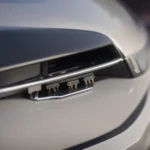Imagine you’re driving down a highway, enjoying the open road, when suddenly, your car starts sputtering. You pull over, check under the hood, and… nothing. You have no idea what’s wrong. This is where a good automotive scan tool comes in handy. A scan tool can help you diagnose problems with your car’s engine, transmission, and other systems, and even help you reset your car’s check engine light. But with so many different scan tools on the market, how do you choose the right one for your needs? That’s what we’ll cover in this article.
Why is an Automotive Scan Tool Important?
An automotive scan tool is an important tool for any car owner, whether you’re a seasoned mechanic or just starting out. Here’s why:
For the mechanic: A scan tool is an essential piece of equipment that can help you diagnose problems quickly and efficiently. By reading diagnostic trouble codes (DTCs) from your car’s onboard computer, you can pinpoint the source of the problem and get your car back on the road faster.
For the everyday car owner: An automotive scan tool can help you save money by enabling you to diagnose simple problems yourself. You can use it to reset your check engine light, monitor your car’s performance, and even help you figure out why your car isn’t starting.
For the enthusiast: An automotive scan tool can open a whole new world of possibilities for you. You can use it to adjust your car’s performance, track your car’s data, and even customize your car’s settings.
What Makes a Scan Tool “Best All Around”?
The term “best all around automotive scan tool” refers to a device that is versatile enough to handle a wide range of tasks, including:
- Reading and clearing diagnostic trouble codes (DTCs)
- Live data monitoring
- Performing bi-directional controls
- Working on different car makes and models
- Having a user-friendly interface
The “best” scan tool for you will depend on your specific needs and budget.
Features to Look for in a Scan Tool
Compatibility: This is one of the most important things to consider. Make sure the scan tool you choose is compatible with your car. Some scan tools only work with certain makes and models, while others are more universal.
Functionality: Do you need a basic scan tool for reading and clearing DTCs, or do you need something more advanced with live data monitoring, bi-directional controls, and other features?
User interface: The scan tool should be easy to use. A good user interface will make it easy to find the information you need and understand the data that’s being displayed.
Price: Scan tools range in price from a few hundred dollars to over a thousand dollars. Consider your budget and choose a scan tool that offers the best value for your money.
Choosing the Right Scan Tool
There are so many different types of scan tools on the market, and choosing the right one can feel overwhelming. Let’s break down some of the different categories you might find:
OBD2 Scan Tools
You’ll probably encounter the term “OBD2” a lot in your search for a scan tool. It stands for “On-Board Diagnostics 2,” and refers to a standardized diagnostic system used in most cars manufactured after 1996.
Basic OBD2 scan tools are affordable and can perform essential functions like reading and clearing DTCs. These are a good option for the average car owner who just needs to reset their check engine light occasionally.
Advanced OBD2 scan tools can do much more than just read codes. They can also monitor live data, perform bi-directional controls, and even work on older vehicles that don’t have OBD2 compatibility.
Dealer Level Scan Tools
Dealer level scan tools are the gold standard for diagnostic tools. They are used by professional mechanics and technicians, and they offer a wide range of features and capabilities. However, these tools are often more expensive than basic OBD2 scan tools.
OBD1 Scan Tools
OBD1 is the older version of diagnostic technology used in vehicles before 1996.
If you own an older car, you’ll need a specific OBD1 scan tool to work with its systems. These tools can be hard to find, and you may need to search online or at specialized automotive stores.
Our Recommendations for the Best All-Around Automotive Scan Tool
Now that you know the different types of scan tools and the key features to look for, let’s dive into some of our recommendations for the best all-around options:
1.
2.
3.
You’ll often find that the most well-regarded scan tools offer a blend of features that cater to a wide range of needs.
Common Questions about Automotive Scan Tools
Here are some of the most common questions we receive about automotive scan tools:
1. “What are the differences between a generic scan tool and a dealer-level scan tool?”
A generic scan tool can read and clear codes, but it may not be able to access all the data that a dealer-level scan tool can. Dealer-level scan tools are often specific to a particular car brand or manufacturer and provide access to a broader range of features and functionalities.
2. “What are some of the best scan tools for European cars?”
Some scan tools are specifically designed for European cars. These tools often have advanced features that are compatible with the unique diagnostic protocols used in European vehicles. You can find several specialized options on the market, but it’s crucial to check the compatibility with your specific car model and brand.
3. “Can I use a scan tool to reset my check engine light?”
Yes, you can use a scan tool to reset your check engine light. However, it’s important to address the underlying issue that caused the light to come on in the first place. Simply resetting the light without resolving the problem will likely cause it to come back on again.
4. “What is the difference between a scan tool and an OBD2 reader?”
While the terms are often used interchangeably, a scan tool has more capabilities than a basic OBD2 reader. A scan tool offers features like live data monitoring, bi-directional controls, and advanced diagnostic capabilities, while a basic OBD2 reader primarily focuses on reading and clearing DTCs.
5. “Is a scan tool worth the investment?”
A scan tool can be a worthwhile investment for many car owners. It can help you save money on repairs, diagnose problems quickly, and increase your understanding of your car’s mechanics. The right scan tool can pay for itself over time, especially if you’re a frequent DIY mechanic.
6. “What are some of the best scan tools for [Specific Car Make/Model]?”
This is a highly specific question that depends on your car’s make and model. To get the most relevant recommendations, you can check out forums or communities specific to your car brand, or consult with a professional mechanic.
Explore More!
Want to learn more about specific scan tools and their features? Check out these other informative articles on Diag XCar:
- Best OBD2 Bluetooth Auto Diagnostic Scan Tool
- Best OBD11 App
- Cheapest Bi-Directional Scan Tool
- Auto Diagnostic Near Me
- Black Box Scan Tool
Ready to Get Started?
We hope this guide has helped you better understand the world of automotive scan tools and find the right one for your needs. If you have any questions or require assistance with setting up your scan tool, feel free to contact us via Whatsapp: +84767531508. Our team of automotive experts is available 24/7 to provide support and guidance.
Don’t hesitate to leave a comment below and share your experiences with scan tools. We’re always eager to hear from our readers and help them find the best solutions for their automotive needs.


